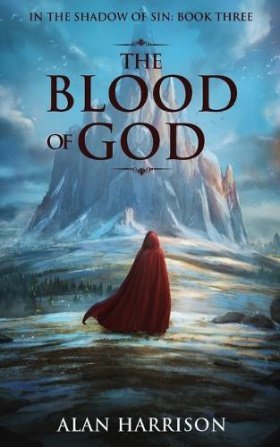“Fuck the Lady!” said Farris. “We need to protect ourselves.”
“But we promised!” said Nicole. “We said we’d do it even if it cost us our lives. Even if we—”
She was cut off by a surge of flames that soared over their heads: a bolt of fire that came shooting from the battlefield, colliding with the airships of the docks.
And as the gas of the ships ignited, a huge fireball engulfed the southern side of the camp.
Farris was knocked off his feet. Disorientated and dazed, he squinted through the camp. A ship ignited and burst ahead of him, huge plumes of smoke billowing forth and spilling into the sky.
He looked up to see the bodies of the docked airships burn. Massive flames leapt from vessel to vessel, tearing through the cotton skins of the ships and leaving only the steel bodies of the rigid frames beneath. These quickly melted, losing their shape and collapsing among one another.
People fled from the inferno, as others called for water and for help.
Panicking, Farris stood. Nicole was nearby, looking up at the fires.
“The gas,” she muttered. “It’s burning faster than any Pyromancer could hope to replicate. More than—”
“Nicole!” rasped Farris, pulling her to her feet. “Take everyone you can and run. Get out of here. Go to the Academy and hide, just… fucking hide, and I’ll come find you.”
Nicole looked about her. Indeed, many who were still alive ran back and forth aimlessly. Padraig seemed to have gathered his battalion again, but he lacked the confidence he had demonstrated before the fighting began.
“But what about the Lady?” she said. “We can’t leave Her.”
“Don’t worry about Meadhbh,” said Farris. “I’m going to pay Her one last visit, then I’ll meet you in the Academy. Lead everyone there. We’ll be safe for a little while at least.”
“Farris, do you have a plan?”
“Yes, just trust me. Just this once, please.”
“Okay,” Nicole said. “Just this once. I’ll believe you.”
Once Nicole turned to alert the others, Farris patted his waist, feeling for the concealed knife there. Of course he had a plan.
Morrígan came here to kill the Lady, but she’ll fail. I’ll do it first.
Farris ran from the burning camp, making his way to the stone structure. As soon as he was out of sight of the others, he let the forced smile leave his lips. Anxiety turned to rage in his chest, and he tightened the grip on his dagger with each step.
We risked so much to protect Her, he thought, descending the stairway two steps at time. And this is how She repays us?
He emerged into the empty outpost and sprinted across the open floor. Once he reached the crooked stairway leading down into the shrine, he slowed his pace, hoping to surprise the Lady.
Oh, but She’s probably seen this happen already! Even as rage thundered through his body, tears continued to stream down his cheeks.
“Meadhbh!” he roared as he approached the altar. He held his dagger before him in a trembling hand. “I need to speak with you!”
The Lady manifested before him, Her glowing body lighting the dark temple. She stood on bent knees, as if ready to spring forward at moment’s notice.
“Farris Silvertongue,” She said. “I did not expect to see you here.”
“Oh, that’s a fucking surprise,” he rasped between sobs. “Did you see what happened up there? Buried alive, the lot of them. She killed them all!”
“I respect their sacrifice, but I fear it may be in vain.”
“You’re right about that,” said Farris. “I’ll strike you down right now and make sure it was!”
The Lady’s stance straightened. “Farris, please, listen to me. You have the sceptic mind of a Simian, but the bleeding heart of a Man. Your emotional side is clouding your logic once more. Surely you can see that you stand no chance to kill me with mere steel. And the Godslayer will be here any moment. You will not last a second if she sees you.”
Farris paused for a moment, and slowly let the dagger fall to his side.
“I… I just don’t know anymore,” he whispered. “Is this really it?”
The Lady stepped towards Farris and rested a warm hand on his cheek. Her dark blue eyes stared deep into his own, and for a moment, the despair in his body vanished.
“We have one more chance,” She whispered. “But my own fate is already sealed. If you are to stand a chance against the Godslayer, you must do this one thing.”
“Anything,” said Farris, his trembling lips barely able to form the words. “Please.”
“Leave here,” she said. “Leave me to my doom and find Firemaster Fionn out in the battlefield. He’ll know what to do next.”
Farris shook his head. “The ground swallowed them all. He’s dead. He’s dead with the rest of them.”
“No,” said the Lady. “He survived. This, I know. He—” She cut herself off. “The Godslayer is here. Go, now. Find him, whatever the cost!”
Farris turned to see the figure of Morrígan slowly descending the crooked stairs. Without making a sound, he darted across the shrine to hide behind a bent column at the foot of the stairway. Although his body shook with anguish, he focused on calming his breath, and becoming as silent as the stone that surrounded them.
“Meadhbh,” came Morrígan’s voice. “Your own light forsakes you.”
“My light has forsaken us all,” replied Meadhbh. “But this was destined long before Creation.”

























